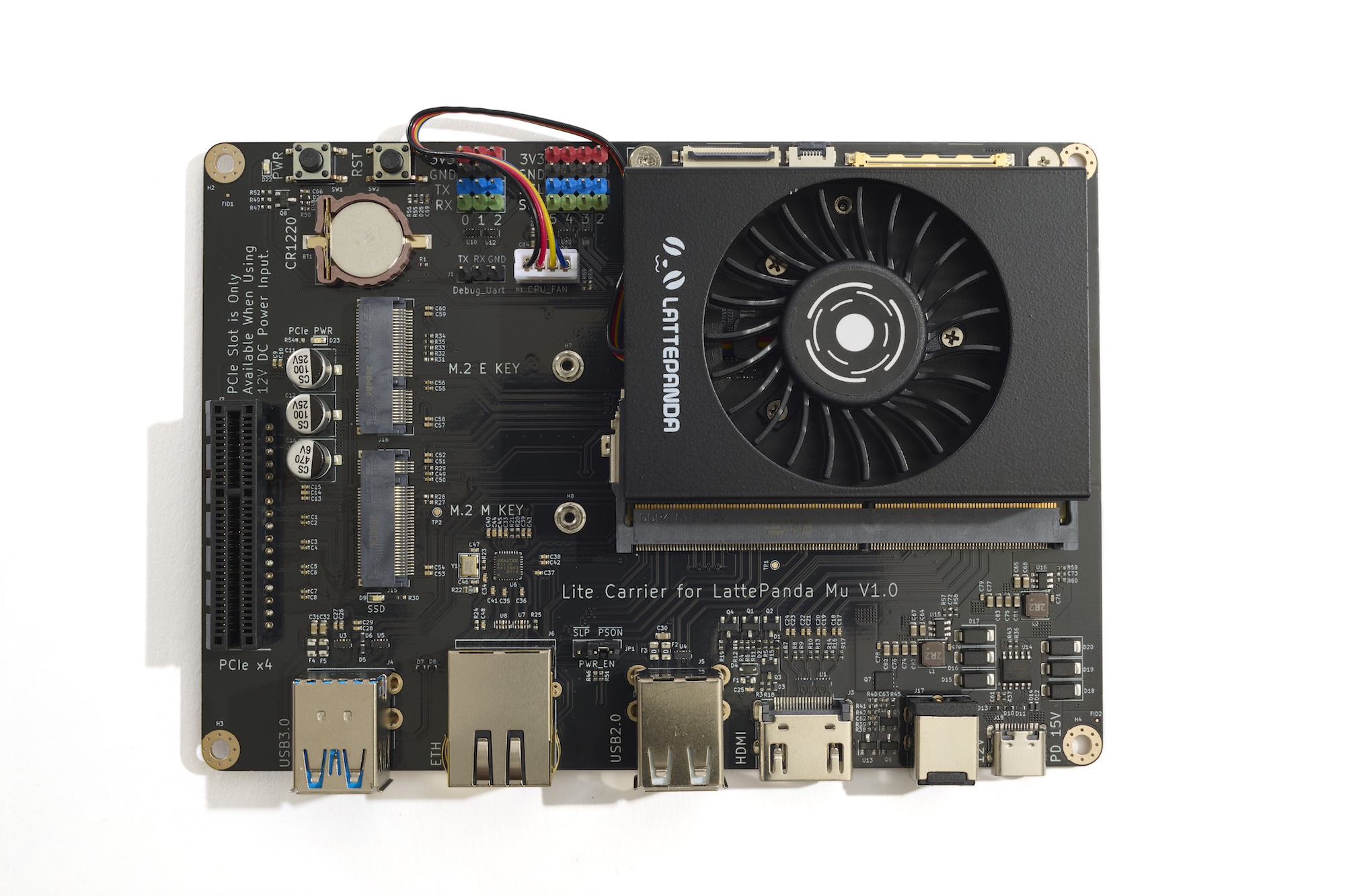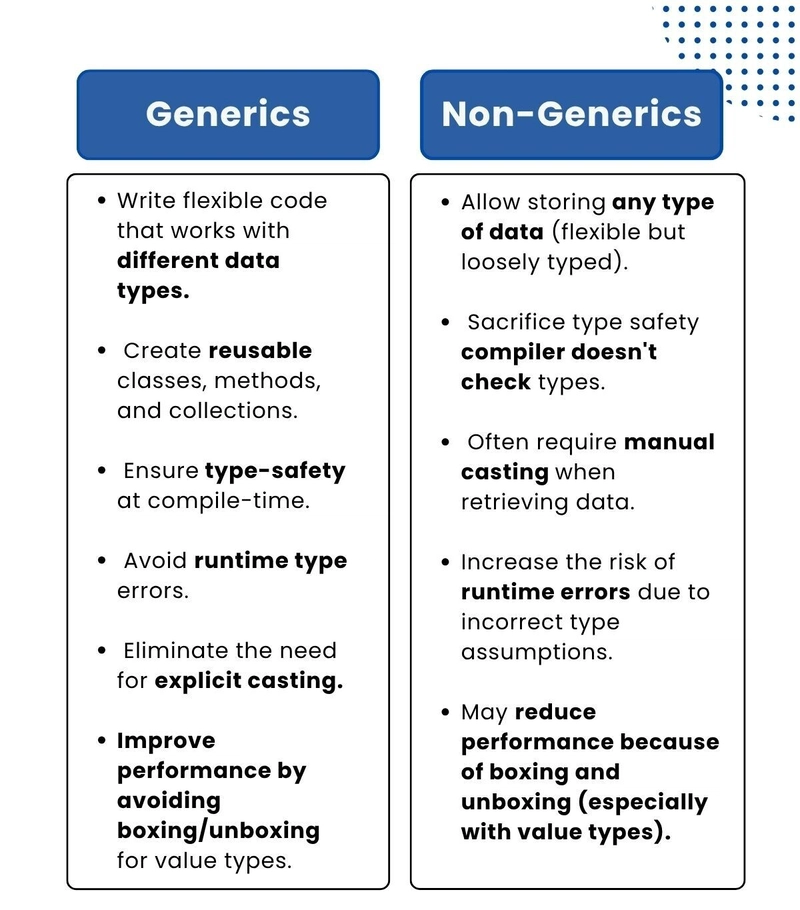Generics and Non-Generics
In C#, Generics and Non-Generics represent two different approaches to handling data types in collections and methods. Understanding the difference helps you write type-safe, efficient, and scalable code. Generics Type-Safe: You define the data type when using it. No Casting Needed: Prevents runtime errors due to invalid type casting. Reusable: Write code that works with any data type. Compile-Time Checking: Errors are caught early. Non-Generics Not Type-Safe: Uses object, so any type can be added. Casting Needed: You must cast when retrieving items. Risky: More prone to runtime errors. Less Performance: Boxing/unboxing happens for value types. Understanding Generics vs Non-Generics in C# Conclusion Using Generics in C# provides strong type safety, better performance, and cleaner, reusable code. Unlike Non-Generics, which rely on casting and are more error-prone at runtime, Generics allow developers to catch type-related issues at compile time and avoid unnecessary boxing and unboxing. Whenever possible, prefer Generics for collections, methods, and classes to write robust, maintainable, and efficient applications in C#.

In C#, Generics and Non-Generics represent two different approaches to handling data types in collections and methods. Understanding the difference helps you write type-safe, efficient, and scalable code.
Generics
- Type-Safe: You define the data type when using it.
- No Casting Needed: Prevents runtime errors due to invalid type casting.
- Reusable: Write code that works with any data type.
- Compile-Time Checking: Errors are caught early.
Non-Generics
- Not Type-Safe: Uses object, so any type can be added.
- Casting Needed: You must cast when retrieving items.
- Risky: More prone to runtime errors.
- Less Performance: Boxing/unboxing happens for value types.
Understanding Generics vs Non-Generics in C#
Conclusion
Using Generics in C# provides strong type safety, better performance, and cleaner, reusable code. Unlike Non-Generics, which rely on casting and are more error-prone at runtime, Generics allow developers to catch type-related issues at compile time and avoid unnecessary boxing and unboxing.
Whenever possible, prefer Generics for collections, methods, and classes to write robust, maintainable, and efficient applications in C#.



























































.jpg)
















































































































![[The AI Show Episode 151]: Anthropic CEO: AI Will Destroy 50% of Entry-Level Jobs, Veo 3’s Scary Lifelike Videos, Meta Aims to Fully Automate Ads & Perplexity’s Burning Cash](https://www.marketingaiinstitute.com/hubfs/ep%20151%20cover.png)






















































































































![[DEALS] Internxt Cloud Storage: Lifetime Subscription (85% off) & Other Deals Up To 98% Off – Offers End Soon!](https://www.javacodegeeks.com/wp-content/uploads/2012/12/jcg-logo.jpg)





![From electrical engineering student to CTO with Hitesh Choudhary [Podcast #175]](https://cdn.hashnode.com/res/hashnode/image/upload/v1749158756824/3996a2ad-53e5-4a8f-ab97-2c77a6f66ba3.png?#)









































































































































_Michael_Vi_Alamy.jpg?width=1280&auto=webp&quality=80&disable=upscale#)



























































































![This one feature makes the Renpho Lynx the most practical smart ring yet [Hands-on]](https://i0.wp.com/9to5mac.com/wp-content/uploads/sites/6/2025/06/Lynx-review-FI.jpg.jpg?resize=1200%2C628&quality=82&strip=all&ssl=1)



![What Google Messages features are rolling out [June 2025]](https://i0.wp.com/9to5google.com/wp-content/uploads/sites/4/2023/12/google-messages-name-cover.png?resize=1200%2C628&quality=82&strip=all&ssl=1)















![Apple Planning Futuristic 'Glasswing' iPhone With Curved Glass and No Cutouts [Gurman]](https://www.iclarified.com/images/news/97534/97534/97534-640.jpg)

![UGREEN FineTrack Smart Tracker With Apple Find My Support Drops to $9.99 [50% Off]](https://www.iclarified.com/images/news/97529/97529/97529-640.jpg)








































































